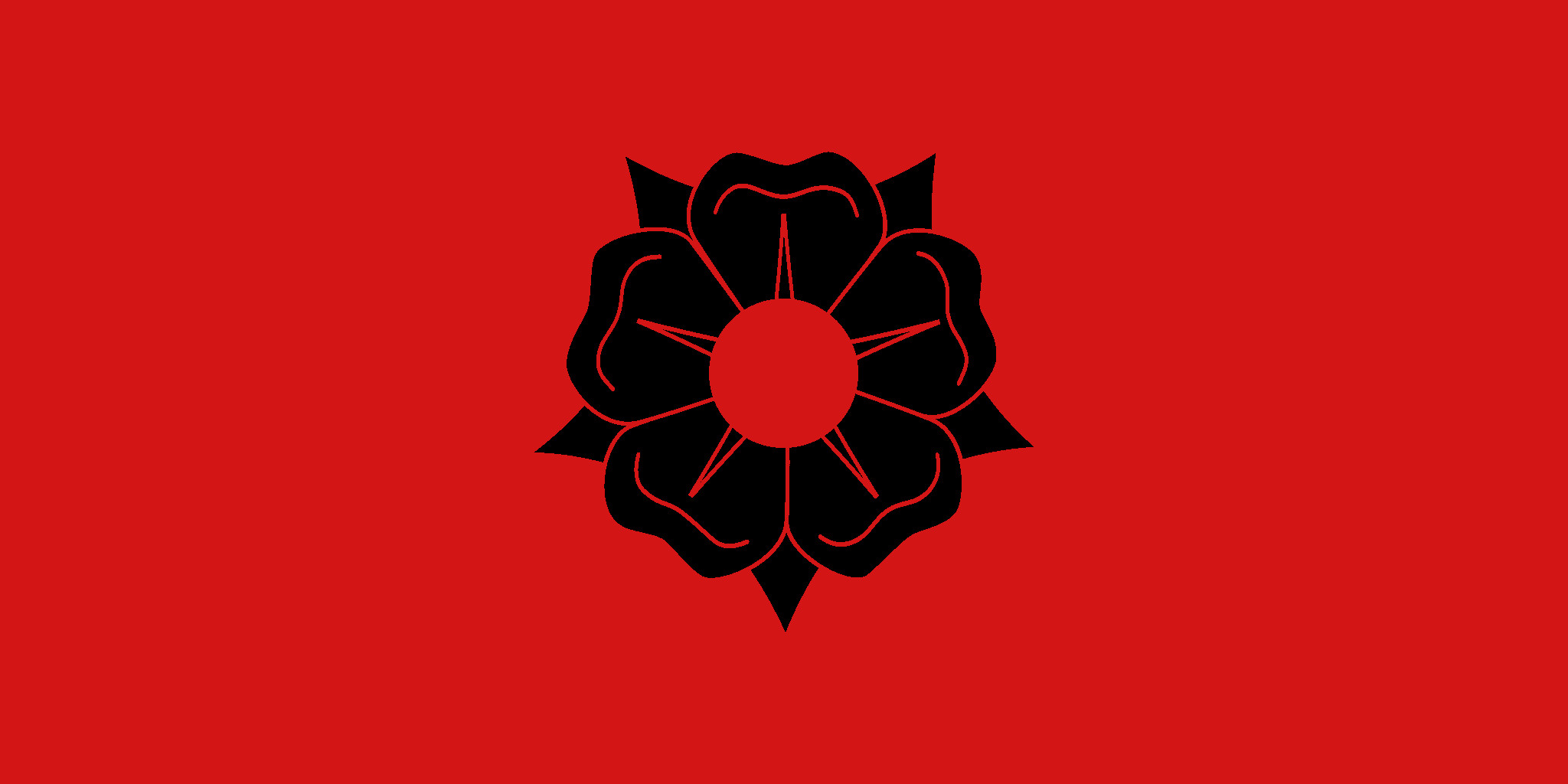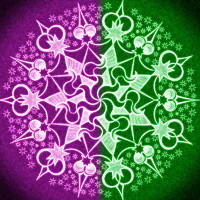In 1,711 of the Dawn Era, over a millenium before the world of
Veshiri would unite under a single banner, the
Great Plague began to take root. The star plagues had come and gone before, but something was different about this one - it swept through the villages and cities of the world like a fire upon a grassland, devastating in its speed and indiscriminate reach. Untold numbers died throughout the world, of the plague itself, in the massacres of those suspected of causing it, or in the unrest that followed.
Relevant to our interests here today, one of the first villages struck down was a nameless hamlet in the foothills of the southern Duakeo Mountains, near modern-day
Sistu. A single child survived, a young elf girl named
Sabi Jobai. She wandered to the road, where a merchant found her and took her to a nearby temple where she was to be raised.
Twelve years later, in the year 1,698 of the Dawn Era, the paladin
Kahbe Ghavani of
Lokmei grew sick of the inaction of the gods, throughout this and other disasters, and formed the
Order of the Serpent, to help people forge a life independent of the divine and to succor those stricken by the plague. The Serpents, it is said, caught the fancy of the young Sabi, who immediately dedicated herself to training and studying to be a paladin.
Some decades later, in or around the year 1,630 of the Dawn Era, Sabi, still an adolescent, ran away from her temple and found the nearest branch of the Serpents. She lied about her age, and it is said the Serpents there were so impressed by her prodigious skill they did not question her story too closely. She quickly made friends among the Serpents - but also found an often cold reception to her fiery rhetoric, for she went much farther in condemning the gods than any had dared do before. In 1,628 of the Dawn Era, a mere two years after joining the Serpents, she published her most famous work,
A Declaration of the Rights of the Worldly Peoples. It had a tremendous impact on the world, quickly becoming one of the most widely debated and widely printed manifestos in history.
The Serpents reacted poorly, and a year after publication, in 1,627 of the Dawn Era, Sabi announced that she would form her own order, striking out with a small group of close friends and those who agreed with her that the Serpents did not go far enough. This was the formation of the
Order of the Black Rose.
For the next thirty-nine years, the Roses trained and went among the worst of the afflicted areas to bring healing magic and then stayed to help rebuild, for the houses of the infected were often burned as a precaution. They became immensely popular, at an unprecedented speed, and that popularity drew notice, for their followers thoroughly denounced the gods and ceased to worship. (The Serpents, in contrast, had not had nearly the impact on worship, being less evangelical and not commonly seeing a contradiction between private worship and building a society not reliant on the divine).
The greatest impact was in the lands of the rain god Imgah, which had already been unusually ravaged by plague, leading to the conflict we are here to discuss today.
The Conflict
Prelude
Imgah, noticing the fall in worship, asked his head priest if the Faithful had turned aside. The priest answered that the common man's faith had been shaken by the great deaths of the last century, and that orders like the Serpents and the Roses preyed upon those in crisis, turning them from Imgah's light. Imgah grew angered, and demanded an accounting from the Roses - he would go to war, for the first time since the Age of Fire when the gods were young.
The fields before the minor stronghold of the Roses.
The battle began on a holy day of Imgah, in the middle of the fall season. Tremendous storms lashed the coast, an expression of Imgah's anger that ultimately disadvantaged the Faithful, who had less experience.
The armies of the Faithful laid siege to the Roses' fortress, refusing to give a period of consideration of surrender as was traditional. Rather, they demanded immediate surrender, and when Sabi refused, they launched their attack - a haste oft attributed to the inexperience of the Faithful and to their god's impatience to make an example of the Roses.
The Faithful, being armed with a truly unusual amount of magic, for Imgah had committed a significant portion of his strength to this conflict, made rapid progress, slaying many Roses in the opening hours. Sabi took aside her Roses' only arcane caster, a sorcerer of some power, and together they cast through the near-planes until they reached the high abode of Imgah himself. Sabi strolled to the gates of his cloud castle and loudly announced her challenge, while her sorcerer held back.
Imgah accepted, and the battle in the mortal realm subsided briefly as the sides waited anxiously for an outcome. For nearly three days the fight between Imgah and Sabi raged, until on the dawn of the third day Sabi struck a mortal blow. It is unclear if Imgah struck her at the same time, or if the enormous backlash from slaying a god overcame her.
The Faithful's spells all faded from their minds, their divine magic failing, even as the sorcerer returned with Sabi's body - and her
sword, transformed by its immersion in the blood of a god. Sabi's second-in-command and close friend took up the blade, and led the Roses to mount upon horseback and throw open the gates, charging down the plain at the despairing Faithful, who routed despite their leader's attempts to rally them.
The Faithful scattered, and with Imgah's death his followers abandoned the temples en masse, many turning to other gods for protection - but many, too, joining the Roses, who had proved the dominance of the elven spirit over the will of the divine.
The Roses experienced a tremendous surge in recruitment, rapidly expanding their operations under the watchful eye of their new leader.
Worship declined globally, and the Rose War marked the beginning of the end of the ages of the gods. The Order of the Rose became one of the dominant international powers in the temples' stead.
Historical Significance
Despite its duration of a mere three days, a blink of an eye in the tremendously long elven wars (where traditionally a single siege battle could ebb and flow over years), the War of the Rose proved to be one of the most world-changing wars in Veshiri history, for never before and never since would someone of Veshiri strike down a god.
Though perhaps the 'never since' might be for lack of opportunity, for many gods voluntarily retracted the extent of their influence, closing off their domains and answering prayers less and less, content to wait out the tide of the unfaithful as their temperamental peer had not. They did not, however, anticipate that the tide would not fall but rather continue to swell, until faith in the gods dwindled to the point where they barely could have influenced the world, even if they wished to risk it.
Sabi Jobai's battle against a god is immortalized in numerous books, plays, poems, songs, and works of art, both contemporary and throughout the ages, of both elven and foreign make. Indeed, her story has been adapted time and again as each new planet that has a quarrel with their gods hears of it.







Ah! I do so love a story of mortals triumphing over the divine. Great work! :3.
Thanks!